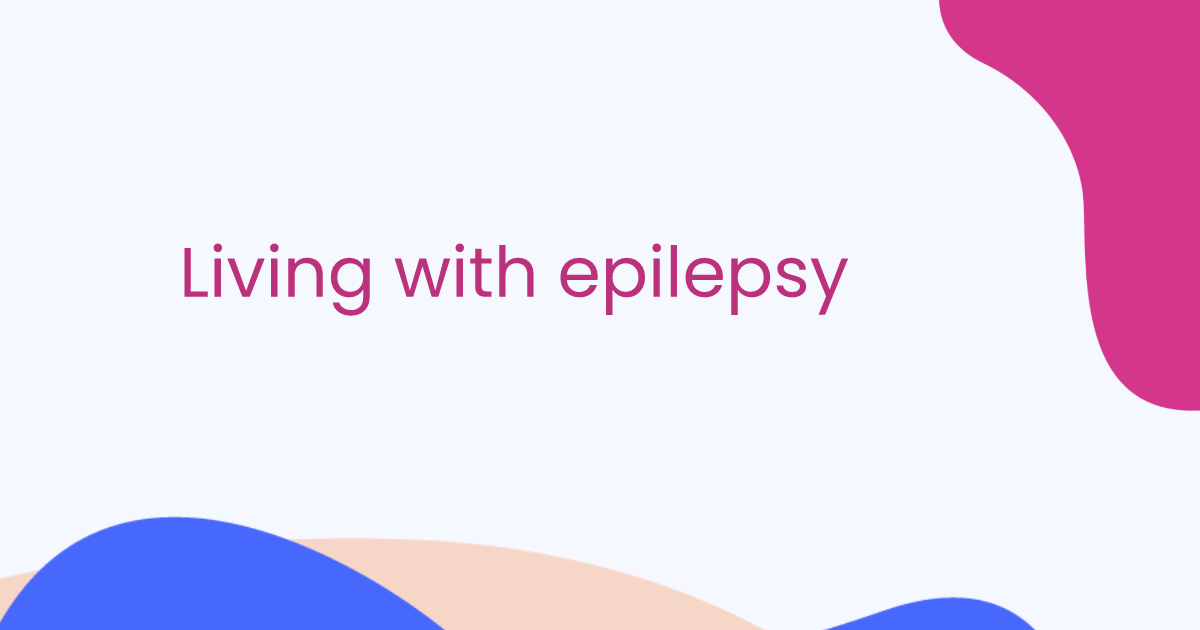Mort subite et inattendue dans l'épilepsie
Révision par les pairs par le Dr John Cox, MRCGPDernière mise à jour par le Dr Colin Tidy, MRCGPDernière mise à jour le 21 mai 2018
Répond aux besoins du patient lignes directrices éditoriales
- TéléchargerTélécharger
- Partager
- Langue
- Discussion
Cette page a été archivée.
Il n'a pas été revu récemment et n'est pas à jour. Les liens externes et les références peuvent ne plus fonctionner.
La mort subite et inattendue survient chez un petit nombre de personnes souffrant d'épilepsie. Les personnes les plus à risque sont celles qui ont des crises graves et fréquentes. La prévention des crises par un traitement peut réduire le risque de mort subite. Un groupe de soutien peut être utile si vous êtes endeuillé par la mort inattendue d'un être cher.
Dans cet article :
Pour des informations plus générales sur l'épilepsie et les crises, voir les brochures séparées intitulées Epilepsie et crises et Types d'épilepsie et de crises.
Poursuivre la lecture ci-dessous
What is sudden unexpected death in epilepsy?
Sudden unexpected death in epilepsy (SUDEP) is a term used when a person with epilepsy suddenly dies and the reason for the death is not known. For example, it is not due to injury or to drowning following or during a seizure and it is not due to a prolonged and severe seizure (status epilepticus).
What causes sudden unexpected death in epilepsy?
Back to contentsThe cause is not known. If a post-mortem examination is done on a person who dies of SUDEP, no abnormality is found to account for the death. There are various theories as to why a person with epilepsy may die suddenly. One theory is that a seizure may affect a part of the brain that controls heart or breathing function and so the heart and/or breathing just stop during a seizure.
Poursuivre la lecture ci-dessous
How common is sudden unexpected death in epilepsy?
Back to contentsThe risk is small for most people with epilepsy. It is estimated to cause about 500 deaths per year in the UK. This sounds a lot; however, when you compare it to the number of people with epilepsy, it is quite rare. Of those who die from SUDEP, it is most common in people who have generalised tonic-clonic seizures, especially in young adults. The most important risk factors seem to be poor seizure control and seizures occurring during sleep.
Note: epilepsy is common. About 1 person in 30 in the UK develops epilepsy at some stage. Most people with epilepsy have a normal lifespan and do not die of SUDEP.
In people with severe epilepsy (frequent and severe tonic-clonic seizures), it is estimated that about 1 in 200 die of SUDEP each year.
In people with mild idiopathic epilepsy (epilepsy of unknown cause), it is estimated that about 1 in 1,000 die of SUDEP each year.
In people who are in remission, the risk of SUDEP seems to be very low (negligible). The term in remission means that you have had seizures in the past but have none or very few at present. This is either because of treatment or because the epilepsy has settled down.
How can the risk be minimised?
Back to contentsIf you have epilepsy, it may be possible to reduce the small risk of dying from SUDEP by:
Preventing seizures as much as possible. This is usually by medication. In some people, surgery is used to prevent seizures when medication has not been successful in preventing seizures. However, in some cases it is not possible to stop seizures fully. See separate leaflet called Treatments for Epilepsy for details.
Being aware of the potential risk of night-time seizures. Some people only have seizures at night when asleep (or have them more often at night). As the risk of SUDEP is still present even for night-time seizures, if possible, you should try to prevent these seizures as much as you can. This may mean a review of medication. But again, in some people it is not possible to prevent seizures fully.
Poursuivre la lecture ci-dessous
Bereavement due to sudden unexpected death in epilepsy
Back to contentsThe sudden death of a loved one for any reason (such as due to SUDEP) is very upsetting and traumatic. If you have lost someone close due to this condition, it may be best to talk it through with your GP or with the GP of the affected person. It is a tragic event where usually nothing could have been done to prevent it from happening. Some people find that it helps to get information and help from a support group.
Sélection de patients pour L'épilepsie et les crises

Cerveau et nerfs
Vivre avec l'épilepsie
Ce dépliant est une brève introduction aux aspects pratiques de la vie avec l'épilepsie.
par le Dr Colin Tidy, MRCGP

Cerveau et nerfs
Epilepsie
Au Royaume-Uni, environ une personne sur trente souffre d'épilepsie à un moment ou à un autre de sa vie. L'épilepsie apparaît le plus souvent dans l'enfance et chez les personnes âgées de plus de 60 ans. Cependant, l'épilepsie peut apparaître à tout âge. En général, les crises sont bien contrôlées par le traitement dans environ 4 cas sur 5.
par le Dr Doug McKechnie, MRCGP
Autres lectures et références
- Epilepsies : diagnostic et prise en chargeNICE Clinical Guideline (janvier 2012)
- Diagnostic et prise en charge de l'épilepsie chez l'adulteScottish Intercollegiate Guidelines Network - SIGN (2015 - mise à jour 2018)
- Friedman D, Donner EJ, Stephens D, et al; Sudden unexpected death in epilepsy: knowledge and experience among U.S. and Canadian neurologists. Epilepsy Behav. 2014 Jun;35:13-8. doi: 10.1016/j.yebeh.2014.03.022. Epub 2014 May 3.
- Lhatoo S, Noebels J, Whittemore V; Sudden unexpected death in epilepsy: Identifying risk and preventing mortality. Epilepsia. 2015 Nov;56(11):1700-6. doi: 10.1111/epi.13134. Epub 2015 Oct 23.
- EpilepsieNICE CKS, mars 2018 (accès réservé au Royaume-Uni)
- SUDEP Action
Poursuivre la lecture ci-dessous
Historique de l'article
Les informations contenues dans cette page sont rédigées et évaluées par des cliniciens qualifiés.
21 mai 2018 | Dernière version

Demandez, partagez, connectez-vous.
Parcourez les discussions, posez des questions et partagez vos expériences sur des centaines de sujets liés à la santé.

Vous ne vous sentez pas bien ?
Évaluez gratuitement vos symptômes en ligne
Inscrivez-vous à la newsletter destinée aux patients
Votre dose hebdomadaire de conseils santé clairs et fiables, rédigés pour vous aider à vous sentir informé, confiant et maître de la situation.
En vous abonnant, vous acceptez notre politique de confidentialité. Vous pouvez vous désabonner à tout moment. Nous ne vendons jamais vos données.